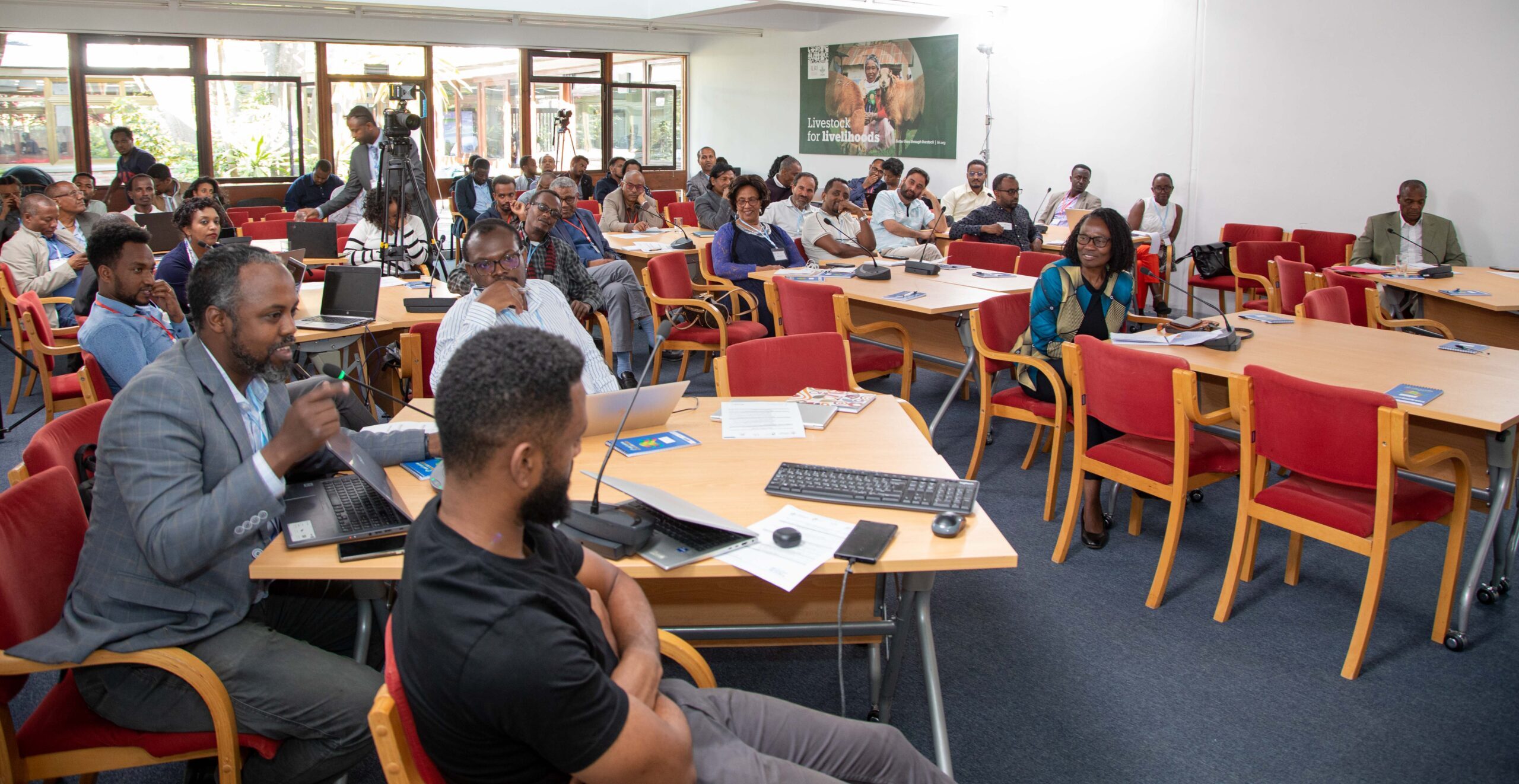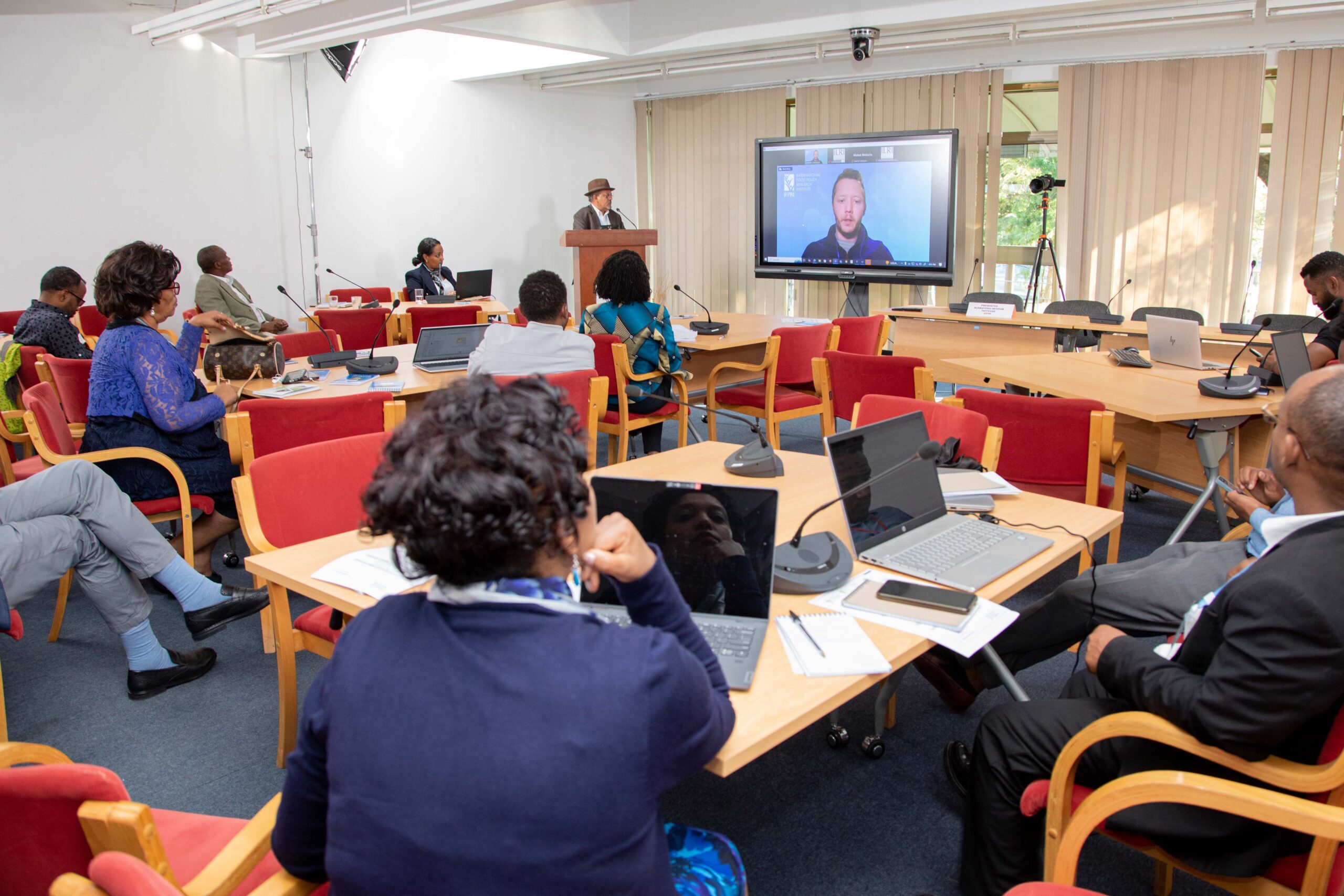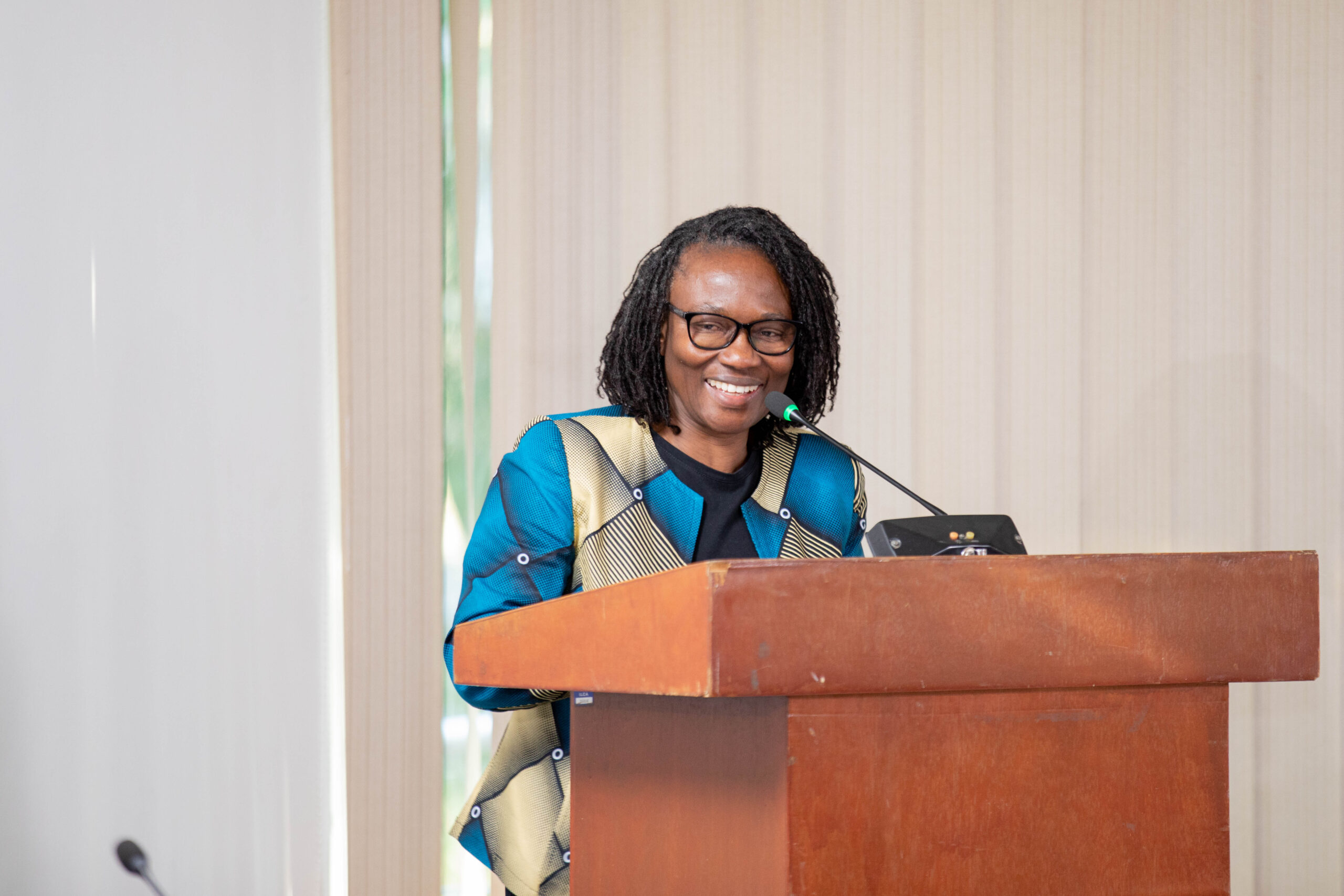The Hybrid Research and Policy Conference on Livestock, Gender, and Agency Amid Conflict in Ethiopia, held on December 11, 2024, at the ILRI Campus in Addis Ababa and online, brought together a diverse group of policymakers, researchers, and development practitioners. The event was jointly organized by CGIAR Research Initiatives (NPS) and several key research institutes including, IFPRI, ILRI, and PSI.
Related video: https://www.youtube.com/playlist?list=PLM2nmulYUUvliCifkTW2WQscxoMOBmMVX

The conference brought an important opportunity to delve into pressing issues surrounding the role of livestock in livelihoods, gender empowerment, and the psychological consequences of conflict. As highlighted by the organizers, the role of livestock cannot be overstated—serving as a vital source of income, nutrition, and social cohesion. The conference aimed to share findings from recent researches, with a focus on understanding how livestock-related interventions can empower women and mitigate the effects of conflict.
The conference was structured into three main sessions:
- Measuring and Improving Livestock Statistics in Africa, which features two presentations followed by a discussion.
- Livestock, Climate Change, Conflict, and Markets, which includes four insightful presentations.
- The third session focused on Introducing the Food Security Simulator for Ethiopia—a microsimulation tool designed to analyze food security patterns in response to economic shocks or income changes.
Each paper presented was followed by insightful discussion, ensuring active engagement and fruitful exchange of ideas between researchers, policymakers, and development partners.
Before closing the conference, the Ethiopian Food Security Simulator was launched. The Food Security Simulator Ethiopia (FSSE) is an innovative and easy-to-use, MS-Excel-based tool for assessing the potential short-term impacts of food price or household income shocks, along with changes in preferences, on food security and people’s diets.

In the closing remarks, speakers underscored the need for a comprehensive approach to post-conflict recovery that addresses both material and psychological needs. There was a shared consensus on the need for holistic solutions, including not just food and medical aid but also psychological support for communities affected by conflict.

In conclusion, the conference reaffirmed that research-driven solutions are essential to understanding the complexities of conflict and empowering communities to recover and thrive. The findings shared during this event will undoubtedly contribute to shaping more effective policies and interventions in Ethiopia.